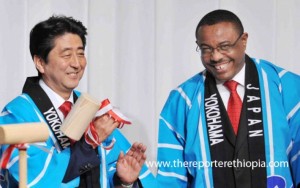 * Scheduled to meet the Abebe Bikila’s family
* Scheduled to meet the Abebe Bikila’s family
Japanese Prime Minister Shinzo Abe is set to visit Ethiopia on Monday (13th) for a two-day visit.
Japanese Prime Minister Scheduled to meet the Abebe Bikila’s familyAccording to information The Reporter has received from the Ministry of Foreign Affairs (MoFA), the Prime Minister is scheduled to visit the long-standing Japanese Garden in the national palace on Monday, where he will have a brief chat with President Mulatu Teshome (Ph.D.). The PM will also meet with his Ethiopian counterpart, Prime Minister Hailemariam Desalegn, for bilateral talks and the signing of an air service agreement.
The last visit by a Japanese leader to Africa took place in 2006, when then-Prime Minister Junichiro Koizumi traveled to Ethiopia and Ghana.
On his second day in Ethiopia Prime Minister Abe is expected to address the African Union on policy issues. Unconfirmed reports suggest that one of the topics Abe will discuss with Nkosazana Dlamini-Zuma (Ph.D.), chairperson of the African Union Commission, is regarding the crisis in South Sudan.
Japan has been keen to assist the newborn and war-torn South Sudan ever since its independence from Sudan.
Apart from Ethiopia, Abe is also scheduled to visit Mozambique, where Japan has major natural-resource projects under way. The tour will then take Abe on to West Africa.
Abe is well known for “Abenomics” (a portmanteau of Abe and economics), which refers to his bold economic policies. Abenomics was the famous term coined after the Prime Minister introduced a plan in Japan to drastically increase government spending to stimulate the fiscal structure of the government, which although risky led to the country halting deflation (a total decrease in a price of goods and services) after a decade of struggle. Abenomics also looked at the way the central bank of Japan had been operating, and in order to regulate the status of deflation it was necessary for Abe to introduce monetary stimulus packages. The prime objective of the monetary policy designed in Abenomics aims to reduce the real interest rates, which economists tone-down for its negative impact in weakening the Yen.
The Prime Minister’s move to stimulate the economy both in the fiscal and monetary arenas opened the way for critics, while some commentators labeled the plan as the biggest economics experiment the modern world has ever witnessed. Prime Minister Abe also wished to kick start the fiscal policy of Japan in a way aimed at energizing economic growth through increased government consumption and public investment. He has already authorized the introduction of some USD 60 billion (5.3 trillion Yen) in public works spending in line with the 2013 budget. Yet the Abenomic policies remain delicate and open to fierce criticism.
In related news, Prime Minister Abe is poised to pay a visit to the family of Abebe Bikila, the legendary Ethiopian long-distance runner who claimed gold in the marathon at the 1964 Tokyo Olympics. Abebe won in a world record at the time, and is well remembered for his spectacular appearance at the summer games. His biography states that 40 days prior to the 1964 Olympics Abebe was struck down by pain during a training run near Addis. Not knowing the cause he tolerated the discomfort before collapsing. After being rushed to hospital Abebe was diagnosed with acute appendicitis and forced to undergo an operation. Soon after – even in his recovery time – he was jogging in the hospital yard at night.
Prime Minister Abe is the first high-level official to visit Abebe’s family, and it is already being seen as a highly symbolic tribute.






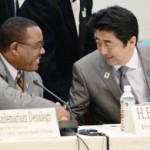
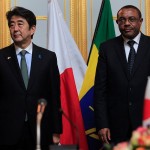



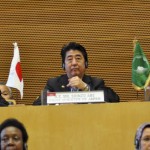



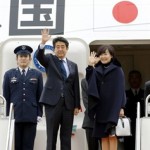












Join Conversations